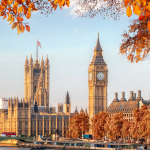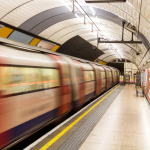As for many other MPs, Nickie Aiken’s path to Parliament was via local politics – but unlike most, she also has the experience of leading the local authority that is home to our national government. Exposure to responsibilities including chairing Westminster City Council’s Licensing Committee, Cabinet posts covering Children’s Services and Public Protection & Licensing, and then a two-year tenure as Leader, mean that Aiken has an intimate understanding of how local government works – and strong views about how it ought to.
“I was a councillor for 16 years and I absolutely understand there is a balance to be struck between the needs of local residents and the needs of business.” She does however warn that this balance must always – for councillors and MPs alike – be weighted towards voters. After all, “I’m there to represent the people.” That desire to represent Westminster’s communities has taken her from City Hall to the Palace of Westminster, where she represents not only her old borough and home of 20 years, but also the City of London.
“I went into parliament because I felt Central London’s voices weren’t always being heard, that they were muted and forgotten – and that concerned me.” Being in Parliament also involves a balancing act, as besides representing her constituents, it’s also “a national job, as you’re here to represent the people who voted for you and all of those who didn’t.” She nevertheless remains keenly interested in local issues, particularly as these relate to planning, development and regeneration, as well as the local economy.
“The biggest issue is housing” she says and the fact that it is unaffordable for far too many living in Central London. The heart of our city has some of the “most expensive land in the world,” partly as it attracts the interest of buyers and investors globally, driving prices up and beyond the reach of many locals. That is a problem not only for residents, but for the success of the city itself: “I have always felt firmly that having people from all socioeconomic backgrounds, including families, single households, and older people, is what keeps a city alive.”
For a city to be sustainably successful, it “must have vibrant neighbourhoods” and that applies throughout Westminster and the Square Mile. Keeping residential communities alive “from Pimlico to Soho” is a priority for Aiken. Soho’s “community feel” in particular “must be protected because that’s what draws people in.” She is similarly keen to “protect places like the Barbican, as well as estates at Golden Lane and Portsoken,” which are “the life blood of the City.”
She admits that she feels sympathy for residents who are at times sceptical of development, but argues that they should not be seen as an obstacle, but valuable allies for viable development. “I always say that in my 16 years as an elected public servant, have never come across a NIMBY. I have come across people who care passionately about their neighbourhood and tend to know what works. They’re not against change, but against the wrong kind of change.”
Aiken is equally upbeat about the ability and willingness of local, regional and national political authorities to identify solutions to Londoners’ problems, find compromises and achieve that kind of positive change. Looking back to her time as Westminster City Council’s Leader, she says she “worked very well” with peers leading other London boroughs, no matter their party-political allegiances. In fact, she asserts that she would often find she “had more in common with Labour Inner London leaders than with Conservative Outer London leaders.” In her experience, the Central Activities Zone’s local authorities are fairly aligned in their assessment of problems that in her view are created by “geography, rather than politics,” even if their preferred solutions sometimes vary.
Indeed, she has seen that willingness to cooperate across party lines continue in her current role. As MP, Aiken “secured licensing for pedicabs with cross-party support, including from Labour MPs, the Mayor of London, and the boroughs of Southwark and Camden.”
Looking to the national big picture, we asked Aiken what she thought of the new administration in No 10 – and what it heralds for London’s place in the levelling up agenda. Aiken declares that she is “a great supporter” of levelling up, though she admits to being “slightly concerned” and having some “misgivings” that this agenda as articulated from 2019 onwards at times encouraged the mistaken view that a successful London was “to the detriment of everywhere else.”
But back to the present, she is reassured by the fact that the Prime Minister Rishi Sunak and Chancellor Jeremy Hunt were both “London residents before politics and both have lived centrally – which means they ‘get’ how London ticks” and that they understand, partly due to their professional backgrounds, “how important it is to the UK’s overall economic prosperity.”
Ultimately, she argues, “the biggest issue for levelling up and the failure of the regions to be as successful as the South East over decades is infrastructure” and particularly public transport. She asserts that Boris Johnson himself “was actually clear about that” – hence his support for major rail links including HS2. Here, Aiken raises her own personal, long-standing support for the Trans Pennine Railway linking cities in England’s North with Scotland as an example of how London MPs can back levelling up nationwide, in practice.
Aiken contends that it is up to London itself to ensure that it is not left behind in the levelling up agenda. It is about “making the case for London, in a constructive and pragmatic way” and acknowledging that the city itself can and should pay for more of its own infrastructure. On the one hand, London is well-placed to demonstrate how crucial it is to national economic growth, with the City in particular “leading the way on green finance and investing in green industries across the UK.” On the other hand, “if we want things like Crossrail 2, we’re only going to have them if we can raise the capital ourselves, which is reasonable.”
Indeed, she argues that London can help shift the dial on key national issues, pointing to her campaigning in support the Net Zero agenda. “I’m lobbying Jeremy Hunt on addressing the imbalance between VAT exemptions on redevelopment versus the 20% rate for refurbishment. I think that’s wrong.” The two need to be “balanced” and “made equal,” on the basis that reducing the built environment’s carbon footprint necessitates encouraging refurbishment over redevelopment wherever possible. “If government is serious about this agenda, then it’s got to take things like that seriously.”
Back to local matters, we broach the subject of Labour’s takeover of Westminster Council in the May 2022 local elections and ask Aiken what she would advise the City Council’s new leader. “It is a massive honour to lead the capital of the capital of a global city and that comes with major responsibilities. Your job is to be an effective conduit between officers and all stakeholders whether residents or business. You’re also there to set a vision and a strategy to ensure Westminster continues to flourish, because it’s so important to the overall success of economy.”
Looking ahead to the next General Election, which as she said is “probably going to be in 2024” Aiken notes that a boundary review process leaves the Cities of London and Westminster more or less “the same, plus St Johns Wood.” She notes that while “on paper” this should boost her majority, she “has never taken the electorate for granted” noting that, if anything, “every election seems to get tougher.”
This interview was conducted by London Communications Agency on behalf of the London Property Alliance as part of its curation of the monthly Central London Planning & Politics newsletter.
Read more from our London Leaders series here.


